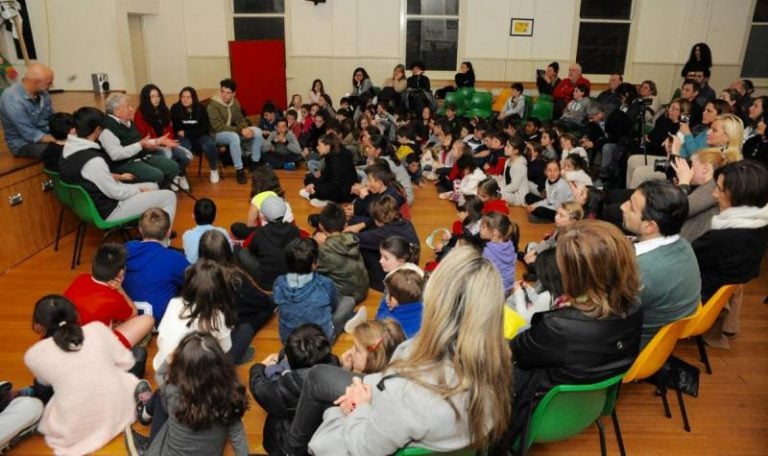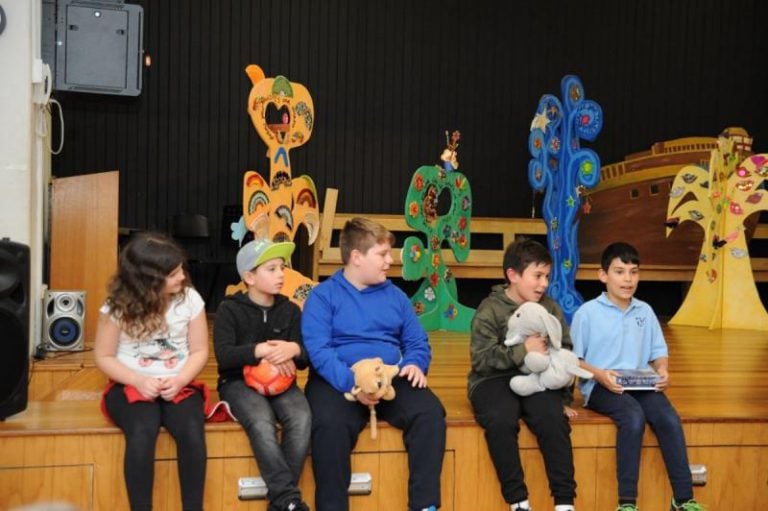It was a very special, emotionally-charged night on Tuesday 20 June at the Holy Eucharist Primary School in Malvern East, one of the Greek Community of Melbourne’s language and culture schools in which weekly classes of Greek as a primary language are held. The students, mostly comprised of children of new migrants from Greece, took turns presenting their memories of the motherland, in an event titled ‘I Always Remember,’ conceived and curated by the theatrical program head, director and actor, Stathis Grapsas.
“I had suggested to the head of the Greek as primary language program, Maria Bakalidou, and the school director, Manos Tzibragos, [we] do a kind of show, approaching the issue of migration, through the children’s memories of Greece,” says the director, having come back to Melbourne in 2013 after almost two decades working in Greece.
“This is a subject that we can all relate to,” he says. Part theatre, part group therapy, the ‘show’ consisted of students sharing stories and memories from Greece.
“They were asked to write any memory, anything that reminds them of Greece that they will never forget; beloved faces, pets, anything that immediately connects them. At first, all the children were exhilarated with this project, they were thrilled to be able to write their own text, instead of learning a play. But, eventually, it proved to be more challenging, some were cautious, or even afraid to enter a dangerous zone and to touch a sensitive subject. There is a great deal of risk involved in this. One of the students was so emotional that she had to stop,” he remembers.
Which only proves the group therapy aspect of the event.
“This was true not only for the kids, but for all of us,” agrees the director. “Their voices talked for everyone in the room. This was very important, that they shared what was in their soul, instead of leaving it buried inside and risk having it come out as a reaction, later on, as it usually happens when we don’t deal with some issues in time.”

Asked to describe a specific narration that stood out, Grapsas praised all the new migrant students, including those born in Melbourne “who spoke beautifully describing lovely pictures. They have not all travelled to Greece, but they feel the connection; they speek Greek at home; they learn our history; they are urged by their parents to keep the ways, to preserve the culture.”
There was some narration that held a special place; that of Nikos Giannopoulos, who came from Frontida Care to share his memories with the children forming a circle around him. “He was the link between the first generation of migrants with the new arrivals, sharing common experience,” says the director. It was this element that made this project especially important, he says, urging the teachers in the community schools to collect this material and keep working on it. After all, there are the next projects awaiting their turn. “We need to talk about what our life in Australia is now, but also to share our thoughts for the future.”










